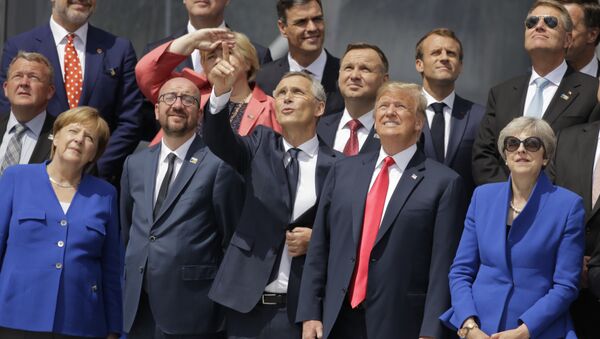Donald Trump contemplated leaving NATO because of Germany’s support for Nord Stream 2, his former adviser John Bolton writes in the just-released memoir, titled The Room Where It Happened.
The US president told Bolton during a July 2018 summit of NATO leaders that he would quit the alliance should Germany press ahead with the deal and should allies fail to meet their spending commitments, according to the book. He reportedly broached the idea more than once in private conversations with aides.
“By January one, all nations must commit to two percent [of their GDP on defence spending], and we will forgive arrears, or we will walk out, and not defend those who have not,” said Trump’s planned announcement, as detailed in the memoir.
“So long as we are not getting along with Russia, we will not go into a NATO where NATO countries are paying billions to Russia. We’re out if they make the pipeline deal.”
Bolton, in his words, cooperated with Secretary of State Pompeo and advised Trump not to drop this bombshell. His main argument was that this decision would divide Republicans in Congress, and they were not in a position to do that because of the ongoing battle for Brett Kavanaugh’s Supreme Court nomination.
Trump appeared to be still considering the idea minutes before the start of a dinner with NATO heads of state. “Are we going to do it?” he purportedly asked Bolton, who told Trump to “go up to the line, but [not] cross it.”
Trump heeded the advice: He reaffirmed his support for the alliance and again slammed its members for not meeting their spending target, but stopped short of threatening to withdraw.
He also “complained that NATO members wanted to sanction Russia, but Germany would pay Russia billions of dollars for Nord Stream II,” Bolton recounts. “Russia was playing us all for fools, he believed, as we paid billions because of the new pipeline, which we shouldn’t let happen.”
Trump had long complained that NATO members were not meeting their commitment to spend at least 2 percent of GDP on defence, while the United States was spending around 4 percent.
Germany, Europe’s largest economy, spent about 1.2 percent of GDP annually throughout the 2010s, well below the set target and much to Trump’s dismay.
Another issue at play was Nord Stream 2, a network of pipelines that was being built across the Baltic Sea to transport gas from Russia to Europe. Germany was among the first European backers of the €9.5-billion project, which drew concerns in Washington that it would boost Russia’s influence on the continent and reduce the share of the lucrative market for the more expensive American liquefied national gas.
The US last year imposed sanctions on the project, demanding that the companies involved immediately stop its constriction. This prompted AllSeas, a Swiss-based construction contractor, to pull out of the project, with just 160 km of pipe left to build. Moscow has vowed to finish Nord Stream 2 one way or another, and expects to complete the project by the first quarter of 2021 at the very latest.




